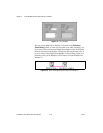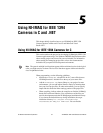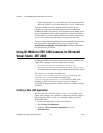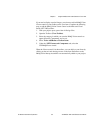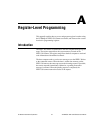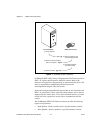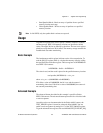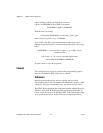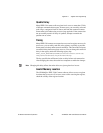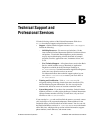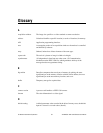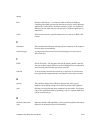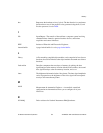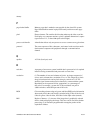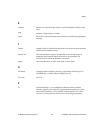
Appendix A Register-Level Programming
© National Instruments Corporation A-5 NI-IMAQ for IEEE 1394 Cameras User Manual
Quadlet Array
Many IEEE 1394 cameras allow register-level access to more than 32 bits
of data per communication request. In most cases, you can safely write and
read a large, contiguous block of data to and from the connected camera.
Some cameras fail when trying to access large payloads. If the camera does
not successfully transfer an array of quadlets, attempt to transfer the
quadlets one at a time.
Timing
Many IEEE 1394 cameras are responsive to successive register accesses. In
most cases, you can safely read and write registers as quickly as possible.
Some cameras lock up under stressed conditions. The camera driver inserts
an artificial delay between register accesses. You can change this artificial
delay in the registry under the following registry key:
HKEY_LOCAL_MACHINE\SYSTEM\CurrentControlSet\Services\
imaq1394k\Parameters\AsyncTransferDelay
.
The key specifies the millisecond value to delay before each transaction.
After changing the value, reboot the host computer to enable the changes.
Note Changing this delay affects the entire driver, not just register-level access.
Invalid Memory Location
The NI-IMAQ for IEEE 1394 Cameras software allows access to register
locations that do not exist. If an error occurs while accessing the register,
check the validity of the register location.



